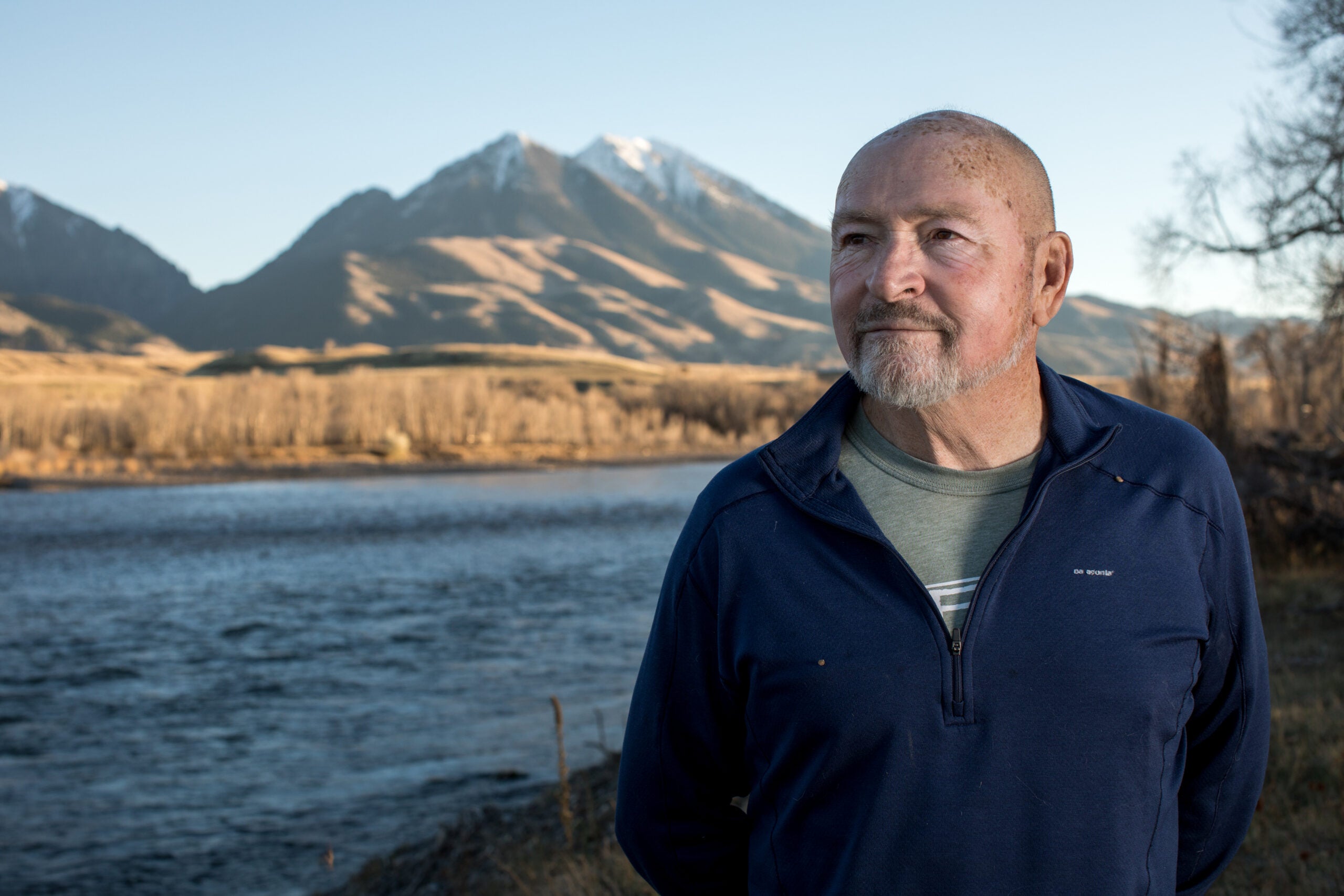Grizzlies ‘Saved His Life’ and Now He Fights To Save Theirs
Naturalist and author Doug Peacock talks about why we need to “fight like hell” to save the endangered and iconic Yellowstone grizzlies.

This page was published 5 years ago. Find the latest on Earthjustice’s work.
Yellowstone’s iconic grizzly bears are at risk of extinction. Yet the Trump administration has persistently tried to gut protections for this endangered species. On July 8, 2020, the 9th Circuit Court of Appeals upheld these protections, stopping plans for trophy hunts in Wyoming and Idaho. “This is a tremendous victory for those who care about Yellowstone and its grizzly bears,” says Earthjustice attorney Tim Preso, who argued the case.
Naturalist and author Doug Peacock joined our lawsuit. After serving two tours as a Green Beret medic in Vietnam, he went into the American wilderness to confront his demons. There, he closely observed grizzlies across the west—an experience he says “saved his life.” Below, he talks about the government’s attempts to delist grizzlies and why now—more than ever—we need to “fight like hell” to save them.
JESSICA: Why did you join the fight to protect grizzlies?
DOUG: It was something that needed doing and no one was taking it on. Back when the government was first considering delisting the species, I wrote a letter to President Obama that was signed by some of the world’s leading conservationists. I [also] formed the “Save the Yellowstone Grizzly” campaign so people could see the petition and take action.
I do not believe that, given the existing mortality rate of the Yellowstone grizzly population segment, grizzlies can endure a single season of trophy hunting. You won’t just have the people with hunting tags taking a bear. Everybody on earth will be shooting at grizzlies. And once they start killing grizzlies, it’s just going to continue.
JESSICA: What are you doing now that grizzlies are once again under attack?
DOUG: I’m keeping up the heat. When Earthjustice filed a lawsuit in 2017, the attorneys wanted testimony to make clear what is at stake in the case. I prepared a statement that says my own life would be irreparably damaged if grizzly delisting stands.
Right now you’ve got an island population of six or seven hundred grizzlies. The number of known grizzly bear deaths is around 60 per year, with additional unknown deaths. If they squeeze even a single hunting license in, it could turn things around so fast.
JESSICA: Why come to Earthjustice?
DOUG: I had to do the lawsuit, with or without anybody. I’m old and I’ve been doing this for about 50 years, and just in case no one else was going to defend the grizzly, I will do it. But for me, to pick a legal group, there’s no contest. I trust Earthjustice.
JESSICA: Does climate change make the grizzlies’ situation worse?
DOUG: It’s causing havoc with the bears. With climate change, everything’s going to become endangered, not just grizzly bears in Yellowstone. It’s going to kick us all in the belly so hard. I know it’s going to come fast, but the upside is that we’re going to see that everything is linked and we’re all in this together. Nobody gets a free pass.
It’s all the more reason to fight like hell right now because you know what’s at stake.
JESSICA: What do you appreciate most about grizzlies?
DOUG: It’s the one animal that shows us our own arrogance and our own absolute lack of humility in living in this world. You see a grizzly and you’re aware of your place on the cosmic food chain. You’re not on the top, you’re in the middle.
When you’re in grizzly country, you don’t walk down the trails thinking about your portfolio or your girlfriend or boyfriend. You’ve got something out there that’s much more powerful, and it’s kind of an instant humility. I find that a tremendously healthy place to be.
JESSICA: What’s one of your most memorable encounters with grizzlies?
DOUG: I saw a couple of grizzlies in June 2017 when my daughter and I were in Yellowstone. We climbed to the top of a butte and the wind was roaring, so we huddled behind a big boulder, all scrunched down out of the wind. I looked at my daughter’s face, and I saw something change. Behind her was a mother grizzly and her yearling cub. I said to Laurel, “Don’t move.” The momma bear reared and kind of smelled the air and looked around. It took us a couple minutes to realize she was making up her mind about us and didn’t perceive us as a threat. The mother proceeded to walk past us to the edge of a cliff with her yearling, and she laid back and nursed her cub. It was just a magical moment.
JESSICA: It sounds like she was acclimated to humans. Now that grizzlies are delisted, does their trust in humans make them more vulnerable?
DOUG: Yes, absolutely. Though that mother grizzly was not necessarily a habituated bear, that trusting situation was set up by the human behavior. This female grizzly and her yearling were only eight miles from the park boundary where hunting would take place in the national forest. If hunting is allowed, those bears would be gone in a day.
If people are allowed to shoot grizzlies, all these bears that have tolerated people are going to be betrayed by humanity in such a deadly way. It’s ugly.
This blog was originally published in November 2017. It has been updated to reflect the appellate court victory on July 8, 2020.
Established in 1993, Earthjustice's Northern Rockies Office, located in Bozeman, Mont., protects the region's irreplaceable natural resources by safeguarding sensitive wildlife species and their habitats and challenging harmful coal and industrial gas developments.